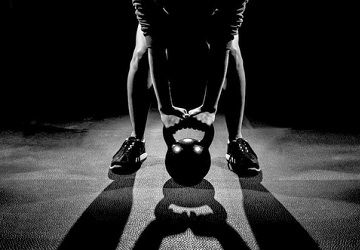- Best Practices New Normal
- Digital Dentistry
- Data Security
- Implants
- Catapult Education
- COVID-19
- Digital Imaging
- Laser Dentistry
- Restorative Dentistry
- Cosmetic Dentistry
- Periodontics
- Oral Care
- Evaluating Dental Materials
- Cement and Adhesives
- Equipment & Supplies
- Ergonomics
- Products
- Dentures
- Infection Control
- Orthodontics
- Technology
- Techniques
- Materials
- Emerging Research
- Pediatric Dentistry
- Endodontics
- Oral-Systemic Health
Health in Retirement: What Can You Do Now to Prepare? (Part 2)
Things you can do now to promote good health later.
, we covered the absolute bare minimum of what you can do now to promote good health in retirement: stay active and eat right. Truth be told, if you do those 2 things, you’ve got a really good chance to enter your post-dentist years in reasonably good health.
But there are a number of other factors at play, and a few other things you’ll want to do to make sure you don’t end up losing a lot of your retirement income due to poor health. How big a danger is it? A study earlier this year by Fidelity investments found that a typical person will spend about $130,000 during retirement to cover your health care expenses. Go ahead and double that if you have a spouse or partner. And quadruple it or quintuple it if you enter retirement with significant health concerns.
Related: Investment Vehicles: The Good, The Bad, and The Ugly
Don’t panic. Those numbers are not annual; they are over the course of your entire retirement. But don’t ignore the situation, either. Here are some more tips for entering retirement as healthy as you can.
Make an Effort at Prevention
Exercising and eating right are 2 forms of prevention, but no one knows better than a dentist how important regular “healthy checkups” can be. Put any professional rivalry aside, and make sure to see your friendly neighborhood physician on a regular basis. You can swap patient stories, for sure, but more important, you can make sure the regular maintenance, such as prostate exams annually after age 50, gets taken care of.
Don’t Limit the Exercise to that Buff Bod
Building those bulging biceps is great, but you’ll want to work the brain, too. I have my doubts about those services that promise to keep your mind sharp through brainteasers, but it’s generally accepted that an active brain can reduce the onset of dementia and diseases that affect the memory. There is some research showing that such brain wave stimulators can help fend off some symptoms of depression as well.
Related: End of Year Strategies: Take Stock as You Near Retirement
Stay Active … Socially
It’s easy for people who spend their working hours among many people to wall themselves off during off-hours. But maintaining robust friendships can lead to greater emotional health, among many other benefits. It can be a great stress-reliever as well, which can lead to greater physical health.
After Prevention, Diligence
If you are having medical problems, hopefully you got an early diagnosis, which in the case of almost every condition known to man increases the chances of preventing disease spread and minimizing the effects of the disease. Don’t just assume that health issues will resolve themselves. Be aggressive in pursuing treatment for those conditions that require it.
Catching any medical issues early can prevent them from turning into huge—and costly—issues later. If you haven’t already done so, take a close look at your medical benefits and make sure you plan matches your needs.
Part of maintaining good health through your retirement years is the simple luck of the draw. You can take all these steps and more, be diligent about your health and your care, and still end up in poor health. But there are things you can do to promote good health that will pay off now and when you retire. You have every reason to consider them.

